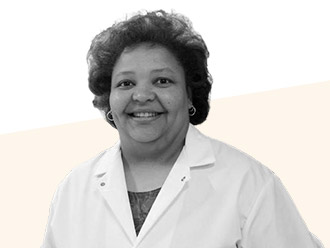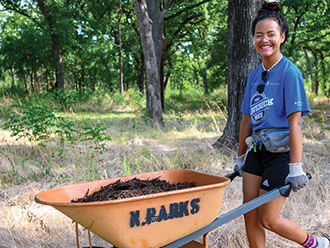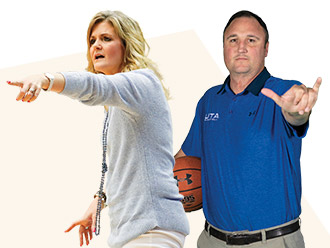Inside his lab at UTA, Venu Varanasi, associate professor in the College of Nursing and Health Innovation (CONHI), relies on a series of adaptations to help ensure that his progressive vision loss, caused by a genetic retinal disorder, doesn’t inhibit research that could revolutionize bone treatments for severe cranial injuries. His projects, he says, are too important to let declining vision hamper his work.
“We’re moving past current methods and building a transformative one that will heal patients without invasive techniques,” Dr. Varanasi says. “Health care is on the cusp of a new era, and our research can put UTA at the forefront.”
Varanasi has developed a technique for live 3D printing of bone-forming scaffolds in the cranium that are grafted to bone defects in real-time. This non-invasive approach would be more in tune with the body’s natural healing process and could lead to shorter healing times.
Marco Brotto, George W. and Hazel M. Jay Professor, says Varanasi’s research marks a bold approach to the treatment of musculoskeletal maladies.
“It captures the meaning of translational research,” Dr. Brotto says. “His challenges have pushed him to pursue work that helps and heals people, and we are fortunate he brought that passion to our university.”



